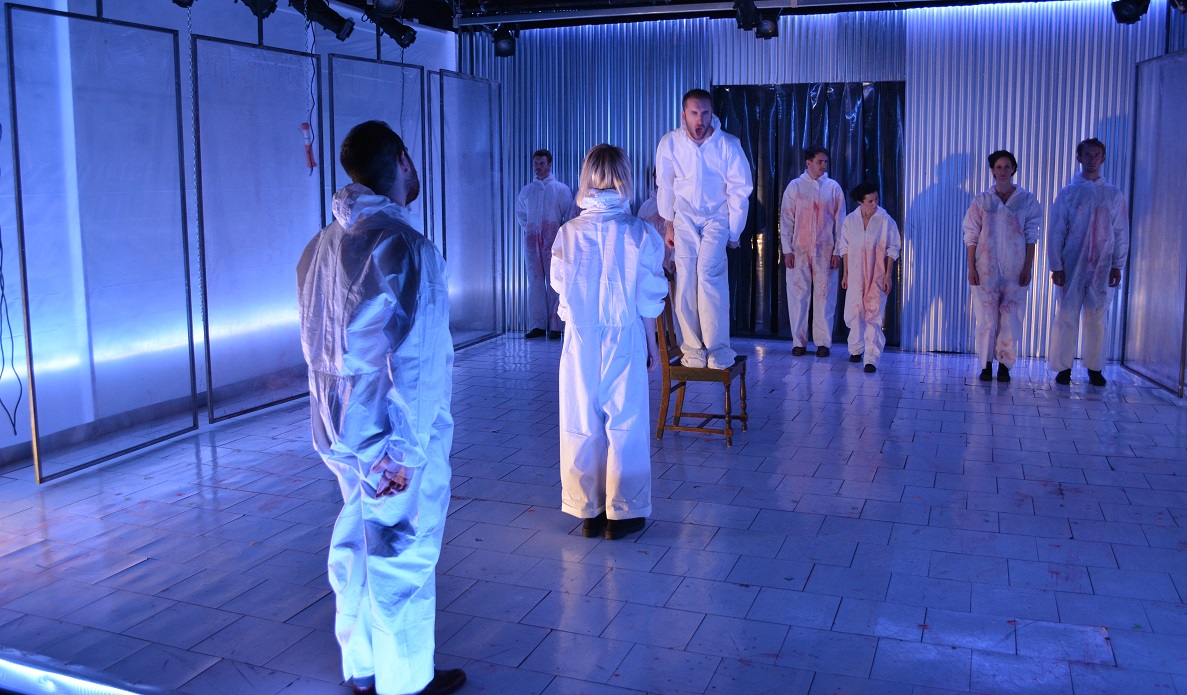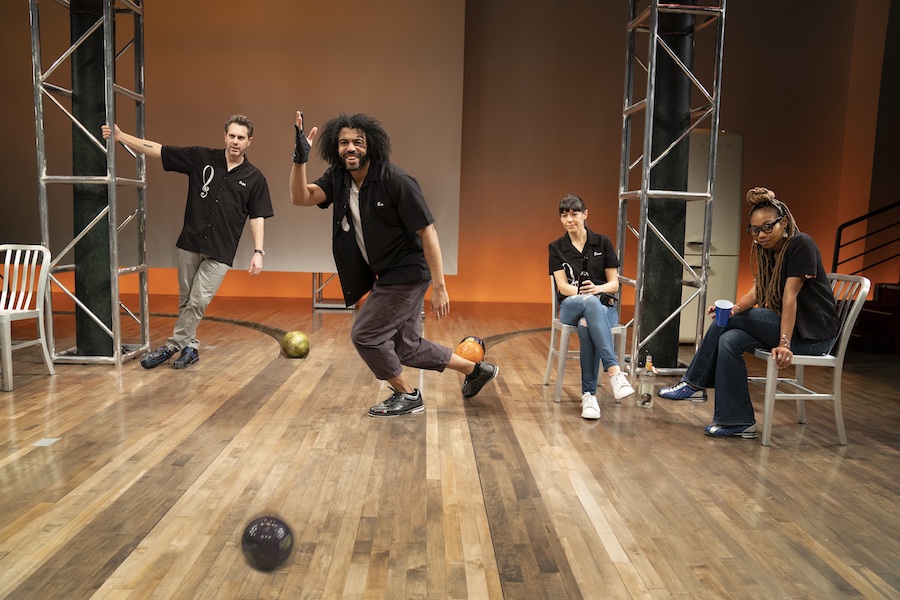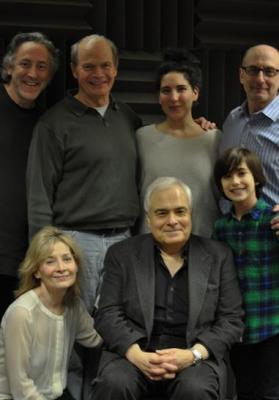by Sandi Durell
Playwright Dominique Morisseau writes about what she knows. . . Detroit, its history and inner-city turmoil in African-American neighborhoods. She is the author of The Detroit Project(a three play cycle) that includes Skelton Crew and Paradise Blue and has also received great acclaim for Pipeline. She has written a finely layered themes of conflicts and personalities in Paradise Blue.
Let’s step back in time to 1949 to a small town known as Blackbottom, downtown on the strip called Paradise Valley, a place where all the jazz hangouts offer up the music of the day – – very well illustrated by the posters (including Muddy Waters, Fats Waller, Cab Calloway, Chick Webb, Billie Holiday, Fletcher Henderson . . .) that line the Linney Courtyard Theatre at the Pershing Square Signature Center, hovered over by a double hung large bulb-lit sign “Paradise” (set design Neil Patel). This is the jazz joint and boarding house owned by trumpeter Blue (J. Alphonse Nicholson), a young man haunted by demons of his dead father (from whom he inherited the club), and plagued by racism. When it comes to playing that horn, Blue is tormented by the lack of his dream of perfection.
Blue’s band has just lost its bassist and he is being blamed as the cause by his drummer P-Sam (the P stands for professional) – Francois Battiste) who freely speaks his mind and doesn’t hold anything back, and is also the focus for much of the humor that ensues in the two hours, 20 minutes. Corn (the piano player – Keith Randolph Smith), on the other hand, is a big-hearted widower who wants to make everything nice, nice.
Blue’s resident girlfriend, cook, cleaner-upper and punching bag is a sweet little thing called Pumpkin (Kristolyn Lloyd) who just wants to please her man, spending free time reciting poetry (if she can get someone to listen – usually Corn) but has never found who she really is until the voluptuous siren . . . “They call me Silver “(Simone Missick) comes strutting in asking to rent a room, flashing a fistful of money to pay for a long term stay. But Silver has more on her mind . . . like landing a man and doing some business. It’s instant hate and abusive language she’s met with from Blue who continually tells her to “Shut up.” Silver is a widow with a checkered past looking as if she just emerged from a film noir as she slowly struts her sultry walk from room to club, lights that cigarette, and is dubbed ‘spider woman’ by P-Sam. She easily makes a fast meal of Corn, entangling him in her sexy web.
Blue’s rage has more underlying meaning, however, knowing that the City is about to embark on a neighborhood gentrification, buying up all the ‘blight’ of rundown properties. And it’s this blight that Silver would also like to inject her venom into ‘cause she’s a smart cookie when it comes to business, making Blue an offer to buy the property for more than the City is paying. But Blue has already put his plan together: sell the property for $10K to the City and leave to make his way as a musician in Chicago. He’d like to take his little Pumpkin along but her heart belongs to Blackbottom, causing a rift in their relationship and making for more abuse from Blue, until spider woman gives Pumpkin a lesson in womanhood that ultimately makes for a surprise and violent ending once unveiled.
Watching Nicholson is akin to reminiscences of a young Denzel Washington filled with powerful, aching moments of pain.
It’s Ruben Santiago-Hudson’s strong directorial hand that turns this cast into a well -oiled remarkable machine that creates its own buzz, resulting in real and truthful performances, aided by Clint Ramos’costumes and Kenny Rampton’s jazz infused music.
Photos: Joan Marcus
Paradise Blue runs thru June 10 at Signature Center, 480 West 42 Street NYC 2 hrs, 20 min (one 15 min. intermission) www.signaturetheatre.org

























